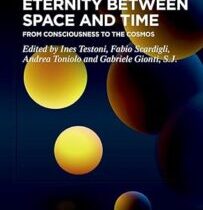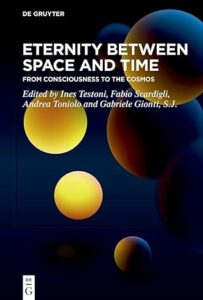Faith Without Works? No Way!
 It happens sometimes that out of the blue, an insight comes to us. Something we might never have considered, suddenly is seen as the clear explanation of a phenomenon we have noticed. Sometimes it’s a relatively minor thing. “Gee, when I go to bed a bit earlier, I’m not so tired in the morning!” “Wow, Mom doesn’t get mad if I clean out the dishwasher before she has to tell me to do it.”
It happens sometimes that out of the blue, an insight comes to us. Something we might never have considered, suddenly is seen as the clear explanation of a phenomenon we have noticed. Sometimes it’s a relatively minor thing. “Gee, when I go to bed a bit earlier, I’m not so tired in the morning!” “Wow, Mom doesn’t get mad if I clean out the dishwasher before she has to tell me to do it.”
Once in while in our lives, the insight is more fundamental. “When I am kind to someone rather than angry and vengeful, we can sometimes find common ground and not become enemies.” “If I forgive or overlook a slight, I may discover that another person is really afraid of being hurt by me. Then we can begin to talk and find common interests.”
And then there are the transformational encounters, those that set us on a path we might never have chosen for ourselves and that lead to a totally different life than we ever imagined. That life may be filled with joy. It may also lead to difficulties and sorrow. These encounters are never without consequence. They are life-changing.
Speaking the insight that is received
The prophets, for example, are ordinary people who have heard the Lord’s voice in an unmistakable way calling them to speak out in the face of injustice. They don’t seek this role. They typically try to get out of it. They argue with the Lord about their fitness for the role. But the Lord is persistent and the fire of that voice burns within the prophet until speech bursts forth.
Prophets can be men or women. Some are young and some are old. We know the names of some. Others remain anonymous, with their words being attributed to other more famous folks.
The prophet Isaiah spoke in the years before the Babylonian exile, calling the people and their leaders again and again to faithfulness to the Covenant. Unfortunately, the response was inadequate and Israel was conquered, its leaders and many of the people taken into exile in Babylon. Through the years, disciples and others wrote words of encouragement and prophecy that have also been gathered into the collection we know as the Book of Isaiah.
The readings known as the Servant Songs are from this later add-on to the prophecies of Isaiah. The prophet here tells of his call and its result.
“The Lord God opens my ear that I may hear; and I have not rebelled, have not turned back.” Physical and verbal abuse were heaped upon the servant by those angered by his words. (It’s safe to use the masculine here, because he speaks of giving his “cheeks to those who plucked my beard!”) Yet the servant remains faithful to God, trusting in the Lord’s help, knowing that he will not be proven wrong in his calls for fidelity to the Covenant. “See, the Lord God is my help; who will prove me wrong?” (Is 50:5-9a)
Who do you say that I am?
Jesus too came with signs and wonders, as well as teachings that were disturbing to those with power and influence in his time. He had heard the voice of his Father and knew that he must speak. The healings were signs of God’s compassion and focus on caring for the needs of the poor and the ill.
Yet who would have expected a carpenter from Nazareth to speak such words and perform such signs? People from his area of Israel were not seen as educated or as exemplars of the faith. He was not one of the priestly class. He was not a teacher of the Law. Yet here he was, speaking as one with authority and calling the people to faithfulness to the Lord.
No one expected that Jesus would go off to the Jordan River to be baptized by John and come back over a month later with a whole new sense of who he was. Most folks remained unchanged outwardly by their experience at the Jordan.
Jesus was touched in a special way in his baptism. He heard the Father’s voice calling him, awakening him to his calling. He took time to let it sink in, spending time alone in the desert praying and testing what he had experienced. He resisted the temptations to use the call for his own benefit and fame. He returned to his home territory and began teaching those who would listen and healing those whose ailments seemed incurable. This arrival of a new prophet was noteworthy and attracted a lot of attention.
One day, he asked his close friends, “Who do people say that I am?” Most folks thought he was a prophet, maybe John the Baptist or Elijah returned from the dead and heralding the coming soon of the Messiah. Then he asked them a more fundamental question: “Who do you say that I am?” This is really a critical question. It’s one we each have to ask ourselves at some point in our lives.
Peter’s answer to this question, “You are the Christ,” was a momentous statement. “The Christ” was the title of the long-awaited one who would restore everything to the way it is supposed to be. At that time, the Christ, the Anointed One, the Messiah, was expected to be the one who would restore Israel to a position of power in the world. It was a dramatic and dangerous thing to say. People had been tortured to death for claiming less. The Roman authorities did not hesitate to deal severely with folks making such claims. Jesus knew this and warned his disciples not to speak of it to anyone. Notice, however, that Jesus did not deny the claim.
Jesus knew that being the chosen one was a dangerous role. He knew in the depths of his being that he must take the word of the Lord to Jerusalem and the authorities there. He knew what typically happened to prophets who brought the Lord’s commands to them. He knew he would be risking his life. In fact, he was pretty sure it would lead to his death.
The Gospel of Mark was written within about 40 years of Jesus’ death and resurrection. In the stories leading up to his final days, we see statements that are based on the insights of the Christian community after the resurrection. Jesus’ statement that he would be killed and rise after three days may be one of those later insights. Regardless of such details, Peter was deeply upset by the idea that his friend would be killed. He tried to get Jesus to back off and not risk going to Jerusalem at all. But Jesus refused the advice. “Get behind me Satan. You are thinking not as God does, but as human beings do.”
Jesus set Peter and those who came later straight. “Whoever wishes to come after me must deny himself, take up his cross, and follow me.” It’s not going to be an easy path. There will be opposition to all that discipleship entails. Folks in power will not take kindly to being told their honor and privileges are not signs of their personal superiority. Those who have security and comfortable lifestyles will not want to give up some of what they have so that others who have not been so fortunate can have the basics of survival and dignity. (Mk 8:27-35)
Demonstrating Faith from Works
How exactly are followers of Jesus to live in faith? Is it enough to believe intellectually? Is it OK to say that if people just worked harder they would be able to support themselves and their families? If I offer wishes for peace and a safe life to a person who has no way to experience it or make it happen, have I done what Jesus calls me to do? What risks am I willing to take?
St. James faced some of these issues as they arose in the early community. He asks point blank, “What good its it, my brothers and sisters, if someone says he has faith but does not have works?” It’s not enough to offer only good wishes. Those who have enough must share with those who do not.
People do not all have the same opportunities. Faith demands a response, a practical response, in which the needs of all are considered. If I claim to have a right to have a roof over my head, food on my table, healthcare for myself and my family, education, safety, and so forth, then I must recognize that others have the same right. We are all children of God. Yet not all have the same opportunities or social capital. So we must share what we have. And when our communities, our cities, our nations get very large, we must set up systems that assure that all have access to these benefits. St. James turns the statement around for the people of his day and for us, “Demonstrate your faith to me without works, and I will demonstrate my faith to you from my works.” (Jas 2:14-18) Only our works truly show forth our faith.
These issues of listening to the voice of the Lord and working for social and economic justice have led to struggles for centuries. The Lord has not stopped calling prophets to speak. Many of the great saints have led by their example of service to the poor. Groups of men and women have joined them in the endeavor and continue to do so even today.
In our own times, people continue to hear this call. We debate it on the local, national, and international stages. Some folks get very rich. Others remain very poor. Some take advantage of the misfortune of others. Some step up to try to help. Some stand outside and call for justice. Others work from within, to set up programs and policies to make things more equitable.
As we move through the next weeks and months, facing tremendous national and international challenges, may we be attentive to the call from Jesus, “Whoever wishes to save his life will lose it, but whoever loses his life for my sake and that of the gospel will save it.” Losing one’s life does not always entail physical death. Sometimes it’s a question of sharing what we have.
The Bottom Line?
Faith without good works? No way! They dance together and shine wonderfully, bringing the Kingdom to birth in our times.
Readings for the Twenty-fourth Sunday in Ordinary Time – Cycle B
Read More





 Eternity Between Space and Time: From Consciousness to the Cosmos
Eternity Between Space and Time: From Consciousness to the Cosmos




 Like many of you, I received a chain email from a friend about the moral imperative to support pro-life candidates. The email was basically an endorsement of Donald Trump including the statement that no Catholic could in good conscience support Hillary Clinton.
Like many of you, I received a chain email from a friend about the moral imperative to support pro-life candidates. The email was basically an endorsement of Donald Trump including the statement that no Catholic could in good conscience support Hillary Clinton.













